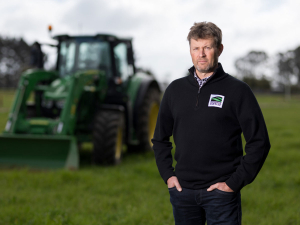Farmers are calling on the Government to replace “a broken” Resource Management Act (RMA) urgently.
Federated Farmers RMA spokesman Mark Hooper claims regional councils are processing fewer new resource consents, “doing so more slowly than ever, while at the same time employing a record-high number of staff to do it”.
"All the key trends are continuing to go in the wrong direction, which shows just how badly our current resource management system is serving New Zealanders."
Hooper’s comments are in response to the Ministry for the Environment’s National Monitoring System data report for 2022-23.
"The numbers don’t lie - we have a problem with the RMA, and it needs urgent attention," Hooper says.
"We know replacing the RMA isn’t an overnight job, so it’s good to see the Government’s Q3 Action Plan committing to progress work on an RMA replacement in the next 90 days.
"The Government needs to stick to its commitment to passing new legislation to replace the RMA during this term of Parliament."
The monitoring data shows 36,000 resource consents were granted in 2022-23, which Hooper says is a staggering number.
"This shows that, rather than resource consents being used for atypical investment decisions needing extra environmental scrutiny, councils are requiring a resource consent every time anyone tries to do anything in this country," Hooper says.
"Measures like the Fast-track Bill can ease things for the big end of town, but until the RMA is fully replaced, small businesses are stuck in treacle having to navigate the RMA."
Hooper says farmers need resource consents almost every time they turn around, whether to move a bore, establish a wetland, build a herd home, or often even just to farm.
The percentage of consent applications processed within statutory timeframes also fell to a record-low of just 76%, compared to 89% in 2020/21.
Councils used section 37 of the RMA to grant themselves extra working time in more than 50% of applications.
Another record broken was the median time taken to process a new resource consent, which rose to 57 days, up from 46 days in 2021/22.
"It would appear that processing a non-notified consent application within 20 working days is a pipe dream."
Hooper says it’s worrying that, at the same time as processing times have deteriorated, the number of staff working on resource management at councils has seen a massive jump.
A total of 2262 staff were employed across all of New Zealand’s councils, nearly 400 more than the 1891 staff employed in 2020/21.
"This is a huge overhead for councils to carry," Hooper says.
"If each staff member has a cost of $100,000 a year, and when overheads are included it is likely much more than this, this represents an ‘RMA-tax’ of well over $200 million per annum.
"This is hundreds of millions that could be spent on roads and bridges, but instead is disappearing in needless paperwork."
Resource consents should be limited to those activities that are truly unique, Hooper says.
Everyday farm activities can be managed more efficiently through farm plans, he says.
"This country needs a new resource management framework to drastically reduce the number of resource consents Kiwis are subject to.
"Federated Farmers strongly believes replacing the RMA is the most meaningful long-term economic reform this Government could deliver."



















